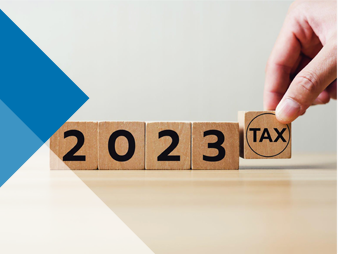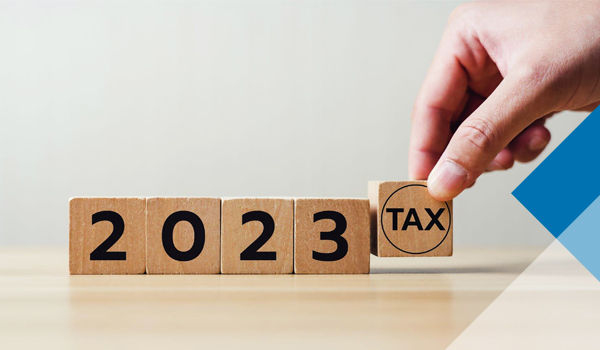 2023 Tax seasons:The start date of the 2023 Tax seasons for individuals and Trusts that does not meet the requirements of the definition of a provisional taxpayer, has not yet been announced by SARS.
2023 Tax seasons:The start date of the 2023 Tax seasons for individuals and Trusts that does not meet the requirements of the definition of a provisional taxpayer, has not yet been announced by SARS.
- Trust:As a point of departure, it is important to note that all trusts are not provisional taxpayers. It is determined on assessment whether or not the person (i.e., trust) should have made provisional tax payments. This means that trusts, being vested trusts or bewind trusts, can never be a provisional taxpayer.Discretionary trust/(s) where not all the income was vested in beneficiaries during the year of assessment but retained in the trust, will then be provisional taxpayers. Therefore, if the trustees of a discretionary trust vest all the accruals in a year of assessment, the trust will also not be a provisional taxpayer for that year, due to section 25B(2) of the Income Tax Act.
Further, a trust with an assessed loss, trading because an assessed loss cannot arise otherwise, will be a provisional taxpayer.
If the trust does not qualify as a provisional taxpayer, but it derives a capital gain on the disposal of an asset during the year of assessment, then the receipt of the capital gain does not render it a provisional taxpayer.
Why is this important? It is important when it comes to the Tax season dates as it is always split between provisional and non-provisional individuals and Trusts.
- Non-provisional individuals and trusts normally earlier, for example 2022 tax seasons’ due date was in October 2022.
- Provisional taxpayers normally January the following tax year, for example 2022 tax seasons’ due date was end of January 2023.
- Home office deduction claim:When you exclusively use a part of your home as a dedicated home office which meets all the requirements to claim a home office deduction it is important to note the following:It has been SARS’s practice to allow mortgage interest in the calculation of a claim for home office expenditure. The interest incurred must be apportioned under the normal apportionment rules.
However, section 23(m) only permits employees to claim home office deductions that are permitted under section 11(a) and (d). Interest on a mortgage bond is an expense that is claimed under section 24J and is accordingly prohibited from being claimed in terms of section 23(m).
Consequently, for the period commencing on 1 March 2022, that is, from the 2023 year of assessment onwards, mortgage interest will NOT be permissible in the calculation of a claim for a home office expenditure.
- Trust:As a point of departure, it is important to note that all trusts are not provisional taxpayers. It is determined on assessment whether or not the person (i.e., trust) should have made provisional tax payments. This means that trusts, being vested trusts or bewind trusts, can never be a provisional taxpayer.Discretionary trust/(s) where not all the income was vested in beneficiaries during the year of assessment but retained in the trust, will then be provisional taxpayers. Therefore, if the trustees of a discretionary trust vest all the accruals in a year of assessment, the trust will also not be a provisional taxpayer for that year, due to section 25B(2) of the Income Tax Act.
- Stricter measures:
- Trust registration:The following information is now required to register a Trust on eFile:
- Trust deed.
- Letter of authorization.
- Certified copies of the identity documents of all the trustees.
- Selfie photo of the main trustee holding their identity document.
- Proof of address in the name of the main trustee (not older than 3 months).
- Proof of address in the name of the trust (not older than 3 months) or CRA01.
- Bank statements in the name of the trust (not older than 3 months).
- Resolution that needs to be signed.
- Power of attorney that needs to be signed by the main trustee.
- IT77TR.
- Founder:
- Full name and surname
- Identification number
- Physical address
- Contact details (cell phone number and email)
- Beneficiaries:
- Full name and surname
- Identification numbers
- Physical address
- Tax numbers
- Contact details (cell phone numbers and emails)
- If the beneficiaries are trusts:
- Authorizations and trusts deed.
- Organogram showing who the founders, trustees and all the beneficiaries of these trusts are.
- The main trustees of this trusts:
- Identification numbers
- Contact details (cell phone and email)
- Tax number of the main trustees
- Physical address of the main trustees
- If the beneficiaries are companies:
- Registration documents.
- Tax numbers of the companies.
- Organogram showing who the public officers, directors and shareholders are.
- The detail of the public officers of the companies
- Identification number
- Tax numbers
- Physical addresses
- Contact details (Cell phone numbers and emails).
- VAT registration:SARS changed VAT registration rules with immediate effect early May 2023 after a spike in suspicious activities.The following is to be implemented with immediate effect:
- All new applications for VAT registration will be subjected to a more stringent registration process which could include the requirement that the applicant present themselves, in person, to the branch closest to where the business enterprise is located for validation and accreditation.
- Where applicants are expected to visit a branch, the visit must be pre-booked on the SARS website, by clicking on the “Book an Appointment” icon.
- All supporting documents required for registration validation must be submitted at the branch on the day of the appointment.
- VAT registration will only come into effect once SARS has determined that the application is lawful.
The following is a list of supporting information that SARS will request after receiving a VAT registration application:
- When a VAT application is submitted by a registered representative, the registered representative must present an original or temporary identity document or driver’s licence or passport and a certified copy thereof.
- Proof of residential address of the representative taxpayer.
- Certificate or Notice of Incorporation:
- Certificate or Notice of Incorporation (CM1 / CoR14.1) in case of unlisted public / private company and certificate of Incorporation (CK1) in case of a close corporation; OR
- Founding documents for companies not registered at the Companies and Intellectual Property Commission (CIPC); OR
- Letter of Authority or Trust deed issued by the Master of the High Court for trusts.
- Recent copy of the business municipal account or utility bill or CRA 01 form for purpose of proof of address.
- A bank statement not older than 3 months of the bank details supplied is in an invalid status.
- Records to prove that the Total Value of Taxable Supplies exceed R50 000 in the preceding 12 months. (NOTE: Cannot be a once of transaction as the VAT Act requires regular and continuous trading activities).
- Written contracts in terms of which a contractual obligation exists to make taxable supplies more than R50 000 in the following 12 months reckoned from the date of registration.
- When submitting your relevant material at a branch, please ensure that you enclose the original letter, received from SARS, as it contains a unique bar-coded reference which links it to your review.
- Trust registration:The following information is now required to register a Trust on eFile:
We trust that SARS will announce the Tax season (filling season) dates shortly.
You are welcome to contact Adri Britz, abritz@fhbc.co.za if you have any questions or require assistance regarding your VAT or Trust registration. We have a skilled tax compliance team that can assist you from e-file registration to completing you VAT201 and / or IT12TR.
Source Reference:
SARS website

